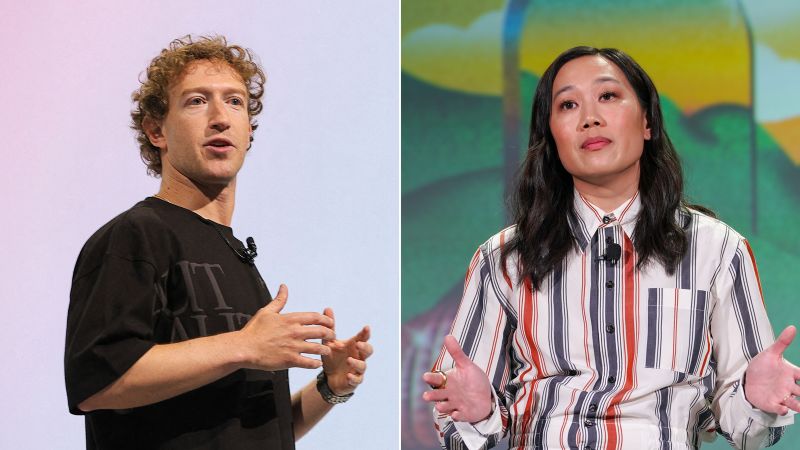In 2016, Mark Zuckerberg, the co-founder of Facebook, along with his wife Priscilla Chan, inaugurated a tuition-free educational institution in California’s Bay Area, an initiative aimed at assisting low-income families. This endeavor was established under their philanthropic organization, the Chan Zuckerberg Initiative (CZI). The Primary School was not just another educational establishment; it represented the couple’s vision of intertwining healthcare and education, providing support for students from their birth until the end of their high school journey. Chan, who holds a background in pediatrics, often articulated her commitment to harnessing education and healthcare as interconnected pillars for societal progress.
However, recent developments have cast a shadow over this initiative. Last week, the Primary School made the surprising announcement that it would close its doors at the conclusion of the 2025-26 academic year. In communication to the numerous families associated with the school—spanning two campuses—they described the decision to shut down as “very difficult,” yet they provided little context or reasoning behind this significant pivot. This closure occurs alongside broader structural realignments within CZI and the tech industry at large, particularly during a period characterized by a political and economic transformation under the leadership of former President Donald Trump.
Reports indicate that the closure of the Primary School is tied to CZI retracting its support, according to various sources, including the San Francisco Standard and the New York Times. A representative from the Chan Zuckerberg Initiative clarified that the decision for the school’s closure was made by its board of directors, pointing to an official statement, yet the representative refrained from elaborating on funding specifics. In response to the impending closure, CZI has pledged to contribute $50 million to assist the affected communities and families.
Carson Cook, the senior manager of strategy and advancement at the Primary School, stated in a CNN interview that meetings with parents began last Thursday to discuss the closure, suggesting that dialogues are ongoing. However, Cook declined to delve into the specific reasons or timing of the closure. He emphasized that the school’s model has always prioritized the holistic needs of the entire family, expressing a commitment to supporting each child and their guardians throughout this transition.
Moreover, recent shifts within CZI reflect an organizational transformation. In February of this year, CZI informed employees of significant cuts to its internal and external efforts focused on diversity, equity, and inclusion—changes reminiscent of those enacted by Zuckerberg’s corporation Meta, amid a political landscape increasingly influenced by Trump. Zuckerberg and Chan have been active participants in the broader conversation regarding social issues, attending high-profile events such as Trump’s inauguration, which further illustrates their mixed political engagements.
When the couple first founded their philanthropic initiative in 2015, Zuckerberg infamously pledged to contribute 99% of his Facebook fortune towards targeted societal improvements, including personalized learning, disease eradication, community building, and fostering connections. Over time, CZI’s mission evolved, encompassing investments in education, healthcare outcomes, and justice reforms. The Primary School was among the flagship projects representing their philanthropic vision, particularly targeting “toxic stress” in children caused by adversity like neglect or poverty—a vision Chan passionately expressed in her public narratives.
The imaginative approaches implemented at the Primary School had garnered recognition and set a precedent for similar organizations. Last month, its medical director shared insights at the SXSW conference on the benefits of merging early childhood education with healthcare—aimed at assisting vulnerable families. Disparities abounded, however, as more than 95% of the school’s demographic comprised underrepresented minorities, underpinning the social challenges that many of the families faced.
Despite the closure, the school’s model of support includes pairing parents with “parent wellness coaches.” These coaches will guide families in identifying alternative educational options as the school prepares for its final year. Cook conveyed their focus on ensuring a nurturing environment for the remaining academic year, emphasizing the importance of the school community and the commitment of its dedicated staff.
This abrupt shutdown signifies a pivotal moment for many families who regarded the Primary School as a vital community asset, especially in the context of rising housing costs and social disenfranchisement driven by Silicon Valley’s tech growth. Parents have voiced their concerns, lamenting the loss of a beneficial institution amid existing economic struggles. As the discourse around the implications of tech giants like Meta continues, the long-term effects on the community remain to be seen.



